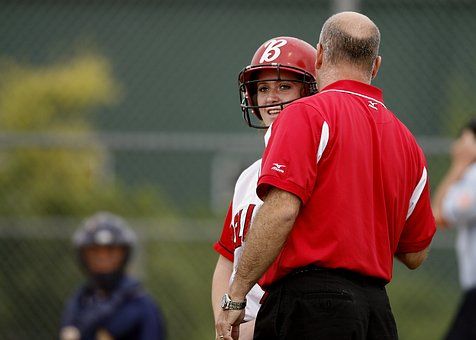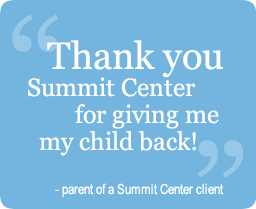Athletes, from elementary school age through Olympians, understand the importance of working with a dedicated coach. Universities spend millions of dollars on athletic coaches of all kinds in hopes of producing outstanding athletes and winning teams. The truth is, athletics is not the only aspect of college life where coaches are valuable assets. Gifted college students need coaches, too. Summit Center’s Gifted Education Consultant, Dr. Paula Wilkes, joins me to discuss the role of a coach in the life of a gifted college student.
Dan: What sparked your interest in becoming a coach for gifted college students?
Paula: I was never an athlete, so I didn’t get to experience first-hand the impact of a college coach, but I was able to hear the stories of my husband who was a football player at UCLA. He told me about the coaches who really inspired him to be a well-conditioned athlete and a team player. We were both impacted by Coach John Wooden, who was UCLA’s basketball coach at the time we were students. Coach Wooden created The Pyramid of Success, and I taught those concepts both as an elementary teacher and as a university professor. While a professor at Pacific University, I created The Center for Gifted Education, and I provided workshops for parents and teachers. I began to see the many and varied ways important issues being faced by gifted kids were being overlooked and ignored. It was clear to me that as a society we were willing to spend lots of money and other resources on gifted athletes, but we often expected gifted kids to fend for themselves. When I retired from education, I moved back to Los Angeles and began to provide direct services to gifted kids through Summit Center’s Los Angeles office. In the nearly six years that I’ve been a gifted education consultant, I have seen a change where college students and their parents are now contacting me for coaching support.
Dan: How have your clients found you?
Paula: Some of them come to Summit Center’s website looking for a coach, and they find me. Some of them hear a presentation by a Summit Center colleague, and others start doing a Google search related to their struggles with sensitivity, intensity, spirituality, or other issues related to their giftedness, and that leads them to me.
Dan: What are some common issues facing gifted college students?
Paula: One of the greatest parts about being a coach who has worked in the field of gifted education for nearly 40 years, I am able to speak directly to the unique challenges faced by gifted people. A client might contact me because their perfectionism is causing them procrastination and/or anxiety. Another client might be facing issues with imposter syndrome where they were a big fish in a small pond, and now that they are at a large university, they are afraid others will see them a mediocre student. I have had clients with multi-potentiality who don’t know how to choose a major (or choose the best classes) because taking one thing means being unable to take another. Some college students are overwhelmed by the intensity of large lecture hall energy and dorm-life chaos. While many of these issues may be experienced by college students in general, gifted students often feel the angst to a great degree.
Dan: How do you go about helping these students?
Paula: Skype, FaceTime, and other means of audio/visual communication works so well for the coaching I do. Students can be far from me in the comfort of their own personal space, or in an empty classroom, or on a blanket in a grassy area, and not having to drive through traffic to get to an appointment. I begin by making sure the client understands their giftedness and the challenges and gifts of their profile. If they are twice-exceptional, I make sure that they are getting the appropriate support that their IEP should be providing for them. This is not a one-size-fits-all type of coaching. I start wherever they are, and I coach them to becoming the most effective and authentic aspects of themselves. This isn’t about graduating with a 4.0+ GPA. This is about self-awareness, self-compassion, and general well-being (intellectual and emotional).
Dan: How do you know your coaching makes a difference?
Paula: My clients tell me our work together is meaningful. I had a client say, “I was complaining about being stuck in a traffic jam, and suddenly I saw you in my mind’s eye telling me that I was just making up a story that was causing me the stress. The traffic wasn’t causing me the stress. I was causing me the stress.” Another client told me that he could tell me things he didn’t share with anyone else. A coach who understands you and has compassion for you can be a soft place to land. A client who is currently working on his Ph.D. told me that he doesn’t think he would have gone on for his doctorate if it hadn’t been for our coaching relationship.
Dan: How long does the coaching relationship last?
Paula: It all depends upon the person being coached. Some come with a specific issue they want to tackle, and once they have met that goal, the coaching ends. Others prefer a trusted guide they can return to across several years.
Dan: What words of wisdom would you offer a parent or gifted college student who is considering finding a coach?
Paula: Make sure the coach understands the challenges faced by gifted and twice-exceptional college students. You don’t want to enter a situation where you will be misdiagnosed for your sensitivities, intensities, existential questioning, and other normal aspects of your giftedness. If you have a session with a coach, and you don’t think this person is a good fit for you, find another coach.
This piece first appeared on Psychology Today. Contact Dr. Paula Wilkes at drpaulawilkes@summitcenter.us. Image Source: Pixabay/CC0 Public Domain, free image


